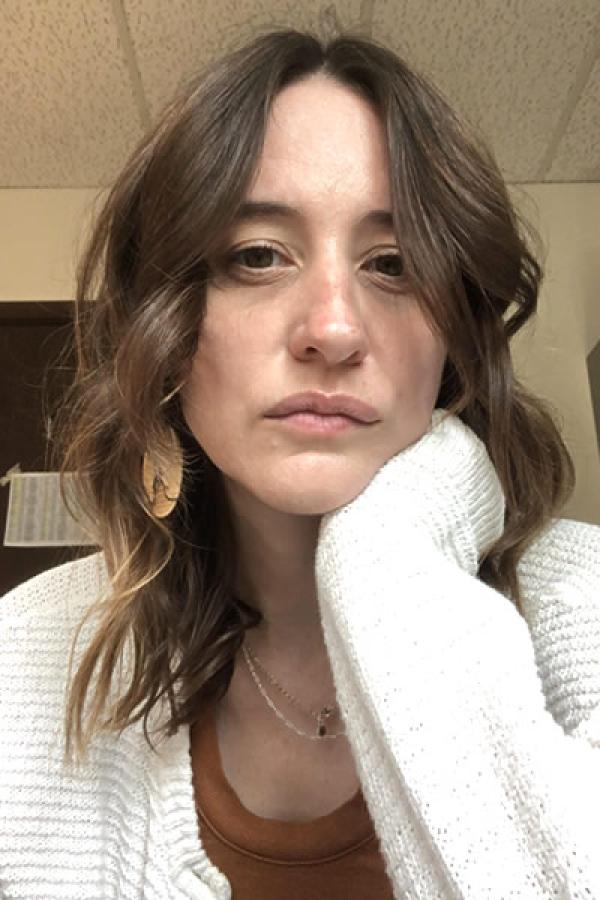Katie Schmid

Photo courtesy of Katie Schmid
Bio
Katie Schmid is a poet and fiction writer who grew up in Evanston and Skokie, Illinois. She is the author of Nowhere (University of New Mexico Press, 2021). Recent work has appeared at the Gay & Lesbian Review, South Dakota Review, and online at the Nation. She is currently a lecturer and associate director of composition at the University of Nebraska, Lincoln.
When I got the text message from the National Endowment for the Arts, I thought it was spam targeting vulnerable poets for money. These days I’m writing about motherhood and mental illness and the scarcity created by late capitalism, subjects that I was warned away from by people I admire and trust, so I couldn’t imagine these poems winning an award of this magnitude.
Motherhood has been an event of cataclysmic immensity for me, a psychic disruption that changed my writing and thinking. Julia Kristeva describes interacting with her baby and “…confronting the flash that bedazzles me when I confront the abyss between what was mine and is henceforth but irreparably alien. Trying to think through that abyss: staggering vertigo. No identity holds up…” (tr. Leon S. Roudiez 179). Besides being metal as hell, this description of parenthood captures the profound fiction of the notion that a self can exist apart. In birth, the self of the parent is forever parted from the child and forever united with her; birth creates an abyss between parent and child, and closes it, in one. For me, therefore, there is no question that we are all entwined: there is no self separate from the world, no self separate from the child, no self separate from who suffers because of that self; no self separate, finally, from divinity, or infinity, or whatever language you use to describe what it is that we experience when we love. “What you love is your fate,” Frank Bidart says, in a line that is a benediction and a warning both. Amen, amen, amen.
Writers smarter than me have charted this subject and continue to, and for that reason it means so much to me to have my particular perspective on it honored, and to be recognized for work that is firmly rooted in the ordinary magic of my body and the material conditions of my life. Thank you to the communities that got me here. Thank you to the NEA.

